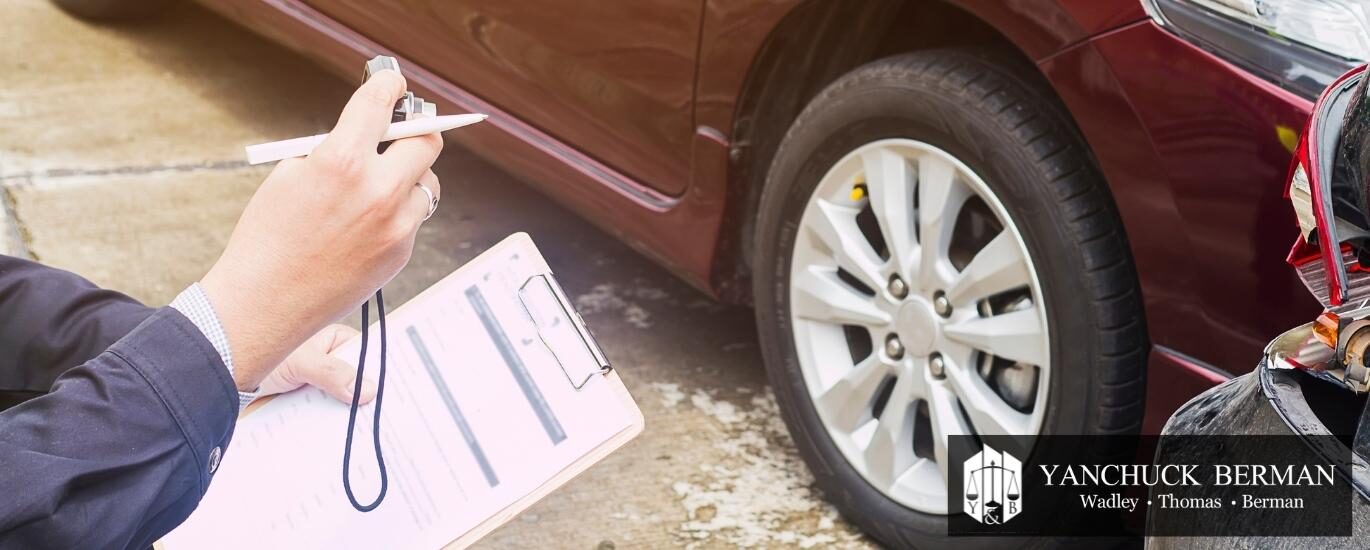


Car accidents can be unnerving and stressful. With the combination of shock, adrenaline, and confusion, the aftermath of an accident can be jarring both physically and emotionally. However, keeping a cool head and having an after-accident plan can make it easier to get through the incident and help you successfully make a car insurance claim.
Here is a step-by-step guide on what to do after a car accident.
You want to make sure you don’t leave the scene of the accident, even if it’s a minor one. Safety is your priority and everything else can wait. Immediately determine if anyone is injured, starting with you and your passengers. If it’s safe to do, check on the other involved parties.
Call 911, even if no one is injured. If there are injuries on the scene, call for an ambulance immediately. Unless there’s imminent external danger, do not attempt to move anyone.
If the accident is minor with no serious injuries, carefully move your car to the side of the road and outside of the flow of traffic. This will help prevent a traffic jam and keep the way clear for first responders to reach the accident scene. Keep your hazard lights on and use emergency flashers or flares to alert oncoming cars. However, it may be best to leave the vehicles where they are if the collision is more severe, or someone is hurt.
Under Florida’s Statute of Limitations Section 316.065, you’re required to report a car accident if:
While you may not want to call the police, you don’t really have a choice in the matter. Nearly every car accident meets the injury and damages threshold, so it’s safe to say you’ll likely have to report the accident.
Law enforcement officers play an important role in car accidents. They will speak to everyone involved in the accident, help determine who is at fault, and prepare a police report. Make sure you give them an accurate record of what happened, based on what you can remember.
Do not guess, speculate, or misstate facts. If asked about any injuries, say you’re not sure instead of saying you’re fine. Pain and injuries may not become apparent until hours or days after the collision. You should also make sure the other party provides accurate statements.
Don’t forget to get the responding officer’s name and badge number. Be sure to get a copy or number of the accident report from the responding officer.
Having photographic evidence can help determine fault and the degree of damage. You’ll want to diligently take photos and videos of:
Take pictures from different angles and distances. Also, write down the date and time of the accident, the road conditions, the direction each car was going, and the speed you were driving.
The next important step is to calmly talk to the other driver and exchange information. At a minimum, you’d need to exchange:
Use extra caution when you talk with the other driver if there are any signs road rage may have led to the accident. While it’s fine to engage in small talk, avoid saying you’re sorry or making admissions, even when you feel at fault. Do not accept blame from another driver or blame the accident or another driver. Simply put, avoid discussion of who is at fault.
No matter how you feel physically, getting medical treatment after a car accident should be a priority. Some injuries can take hours or days to manifest. Even in minor accidents, you can sustain a serious and permanent injury.
Go to the emergency room if you’re in pain, feel unusual, and were dazed following the collision. Even if you feel okay, resist discussing your health with the other parties and make sure you see your physician.
While it may be tempting to make payment negotiations with the other driver, failure to notify your insurance company following a car accident can leave you liable for damages. Without a comprehensive evaluation, the cost of repairs may outstrip your car’s value. In some cases, you might still have to use your own insurance, even if the other driver was at fault. So, regardless of who is at fault for the car accident, it’s important to call your insurance company as soon as possible.
One of the most important things to do following a car accident is to seek the guidance of a car accident attorney. Your attorney can offer advice, make sure valuable evidence is not destroyed, and protect your rights. The car insurance companies may want to take statements or make an offer after an accident.
They will try to make it sound like you were at fault or were not injured. A personal injury attorney can help you avoid all the pitfalls and make sure you receive the compensation you deserve.
If you or a loved one has been injured in a car accident, turn to the experienced St. Petersburg personal injury attorneys at Yanchuck Berman. seasoned legal team has the skills, tenacity, and resources to protect your interests and pursue the rightful compensation for your losses. Contact us today to schedule your free, no-obligation legal consultation.